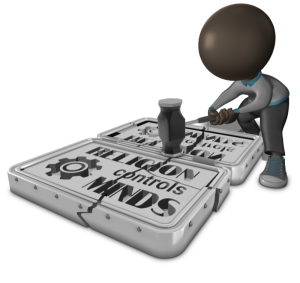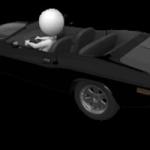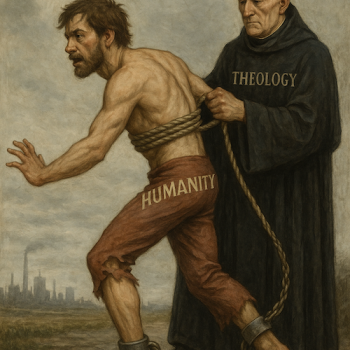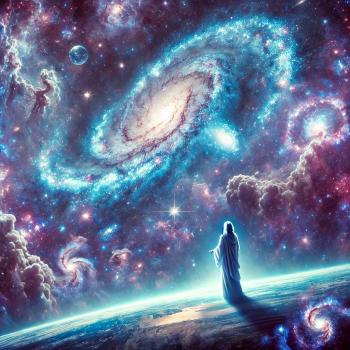 In this post, I’m sharing something personal and transformative. For years, my social media presence has been defined by my role as a Christian Pastor and ecumenical leader. However, in the past two years, my journey has taken a drastic turn – from Christianity to atheism – then from atheism to antitheism. This change isn’t about challenging beliefs but awakening from life’s autopilot and embracing conscious, deliberate living.
In this post, I’m sharing something personal and transformative. For years, my social media presence has been defined by my role as a Christian Pastor and ecumenical leader. However, in the past two years, my journey has taken a drastic turn – from Christianity to atheism – then from atheism to antitheism. This change isn’t about challenging beliefs but awakening from life’s autopilot and embracing conscious, deliberate living.
Shift 1: From Religion to Atheism
My transition to atheism wasn’t about denying others their beliefs but a personal awakening. I realized that blind adherence to any ideology, especially when it harms more than it helps, is detrimental. This realization made me question not just my faith but how we live our lives on autopilot, missing the essence of true engagement and growth.
Wisdom from the Young and the Wise
In this journey, my sons played a crucial role, pointing out that some of my posts, though well-intentioned, were cringe-worthy. This feedback was crucial. It’s not about pleasing everyone but about fulfilling my lifelong desire to help others. It’s about leveraging my success, not just financially but in empowering others, to lead better, more fulfilling lives.
The Decision to Evolve
Over the last two years, I dedicated much of my time to pointing out the hypocrisy and folly of religion. My focus now shifts to exploring and sharing the myriad facets of life – from hobbies like drawing, painting, and playing guitar to embarking on a fitness journey, and diving into metaphysical and scientific explorations of spirituality.
In a world where spiritual beliefs are as diverse as humanity itself, understanding the nuances between atheism and antitheism becomes essential. This exploration is not just an academic pursuit but a journey into understanding how spirituality can exist independently of traditional religious structures.
Shift 2: From Atheism to Antitheism
Before I move on, I’ve decided to soften my stance a bit. My Fiancé, Mai, my Sister, Sandi, and my FreeologyFriday cohost, Aaron, all have a big part in this. While I am fully persuaded that, if there is a god, it isn’t the god of the bible. I also realize that there are experiences that lack anything more than a “spiritual” explanation; for this, I chose to take the path of the mystic or metaphysician. While I am a scientist at heart, I also want to leave space for phenomena that defy explanation. I will continue to seek tangible, measurable, repeatable results but I will no longer totally shun the spiritual. I’m not opposed to deities if someone chooses to believe in them but I will not return to theism, either
Reinvention as a Constant
Life is a series of versions of ourselves, constantly updating, like software. We have the right and responsibility to reinvent ourselves periodically. It’s not just desirable but necessary for growth. I’ve made the conscious decision to embrace change, even if it means becoming unrecognizable to those who knew our previous versions. I also reserve the right to evolve and grow.
Defining Atheism and Antitheism
Atheism is the absence of belief in gods or deities. It’s a position that doesn’t assert a belief in a higher power. Atheists may vary in their rationale, from lack of evidence for gods to a philosophical stance on the nature of belief itself. Atheism, in essence, is about what one does not believe.
Antitheism, on the other hand, goes a step further. It’s not just a lack of belief in gods; it’s the opposition to theism. Antitheists often critique the influence of organized religion on society and individuals, arguing that belief in a deity or adherence to religious doctrines can be harmful or repressive.
The Distinct Paths of Atheism and Antitheism
Atheism and antitheism, while related, chart different courses. An atheist might simply lack belief in gods without actively opposing religious beliefs or institutions. In contrast, an antitheist actively challenges the concept of theism, often citing the negative impacts of religion on society, like impeding scientific progress or fostering divisiveness.
Can Spirituality Exist Without Religion?
A critical question that arises in this context is the possibility of spirituality without the framework of organized religion. The answer lies in understanding what spirituality truly means. Spirituality, at its core, is a sense of connection to something bigger than oneself. It often involves a search for meaning in life and a quest for personal growth and understanding.
For many, religion provides a structured path to this spirituality, complete with doctrines, rituals, and community support. However, spirituality does not necessitate such structures. It’s entirely possible – and for some, profoundly fulfilling – to have a spiritual life outside the confines of traditional religious practices.
The Essence of Secular Spirituality
Secular spirituality focuses on personal growth, ethical living, and a deep appreciation for the interconnectedness of all life. This form of spirituality often draws from various sources: the awe of the natural world, the pursuit of science and understanding, the depth of human emotions, and the complexities of our shared human experience.
The spiritual atheist or antitheist might find profound meaning in the arts, the wonders of the cosmos, the intricacies of human relationships, or the pursuit of knowledge. This approach to spirituality is deeply personal, often without dogma or prescribed beliefs. It celebrates the human capacity for wonder, empathy, and the quest for understanding.
The Role of Meditation and Mindfulness
One of the bridges between atheism, antitheism, and spirituality is the practice of meditation and mindfulness. These practices, often stripped of their religious connotations, provide a means to self-awareness, peace, and a deeper understanding of the interconnected nature of existence. They offer a way to cultivate a spiritual life focused on the present moment, personal well-being, and a compassionate understanding of others.
Community and Connection in a Secular Context
Human beings are inherently social creatures, and the need for community and connection is vital. Secular spirituality often finds expression in communities centered around shared interests, values, or goals. These communities provide support, fellowship, and a sense of belonging, much like religious congregations, but without the framework of theism or religious doctrines.
The Ethics of Atheist and Antitheist Spirituality
A common misconception is that atheism and antitheism lack a moral framework. However, secular spirituality often embraces a strong ethical dimension, grounded in humanistic principles. It promotes values like empathy, respect, and responsibility, not as divine commandments but as essential components of a well-lived, meaningful life.
Respecting Diversity in Spiritual Expressions
As we explore spirituality outside religion, it’s crucial to respect the diverse ways people find meaning and connection. Spirituality is deeply personal, and what works for one individual may not resonate with another. This diversity is not a weakness but a testament to the rich tapestry of human experience.
Legacy, Freedom, and Helping Others
Looking forward, I aim to leave a legacy of freedom, happiness, and productivity. I want to challenge conventional wisdom, break boundaries, and help others do the same. It’s about fostering a world where freedom is not just a concept but a lived reality.
Wrap-up: The Personal Journey of Spiritual Discovery
In conclusion, both atheism and antitheism offer perspectives on the existence of deities and the role of religion. While they differ in their stance towards theism, both open the door to a form of spirituality that is personal, ethical, and fulfilling. This journey is about finding one’s path to understanding, connection, and meaning without relying on traditional religious structures.
As I embark on this new phase, my focus is on sharing, learning, and growing. I welcome your thoughts, challenges, and perspectives. Let’s embark on this journey of continual reinvention, pushing boundaries, and challenging the status quo. It’s not just about personal growth but contributing to a collective enlightenment, reshaping our world for the better.
What do you think? Are you a theist, an atheist, or an antitheist? What is your view of spirituality? I look forward to reading your comments!
Derrick Day is the author of Deconstructing Religion, and the host of The Forward Podcast.
Follow him on Facebook, Instagram, Twitter, TikTok, and YouTube
















